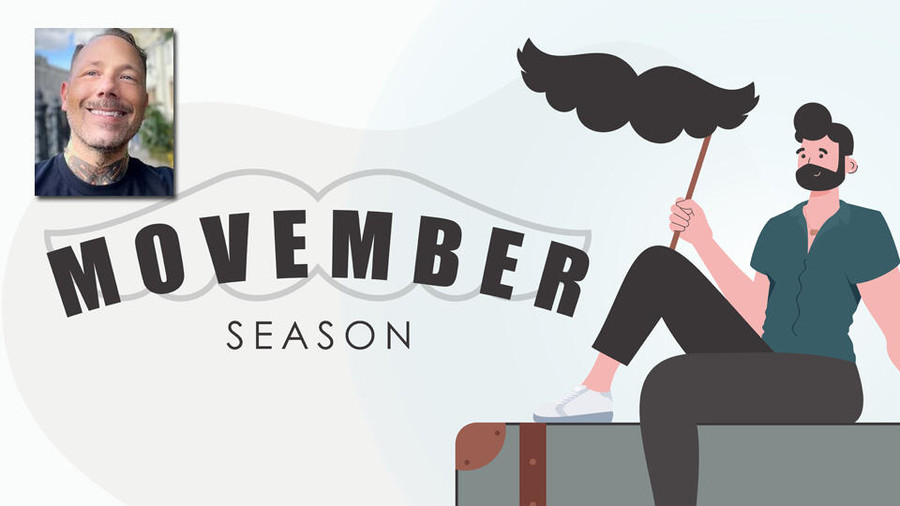As Movember rolls around each year, men across the globe grow mustaches to raise awareness of men’s health issues and help men take control of their mental and sexual health. By aligning their business with this mission, retailers and manufacturers can foster long-lasting connections with their customers while addressing critical health issues that affect millions of men around the world.
Why Movember?
By collaborating with retailers to create Movember-themed in-store displays, or offering limited-edition products during November, manufacturers can help build buzz and increase visibility.
Originally rooted in addressing prostate and testicular cancer, Movember has expanded to include mental health and suicide prevention. This shift recognizes that mental well-being plays a crucial role in men’s overall health — including sexual health, performance and relationship satisfaction.
Mental health challenges impact millions of men each year, but societal norms often prevent men from addressing these struggles openly. This reluctance to seek help, often driven by the cultural expectation to remain “strong” and “stoic,” can lead to difficulties in the bedroom. Depression, anxiety and stress are all known to cause problems such as erectile dysfunction, low libido and difficulty experiencing intimacy.
For retailers and manufacturers in the sexual health and wellness industry, Movember presents a unique opportunity to tap into this critical conversation while driving sales, creating innovative products and supporting the growing demand for mental and sexual health resources.
Sales and Marketing Opportunities During Movember
Create Targeted Movember Campaigns: Retailers can build Movember-focused social media marketing campaigns around products that support prostate health, mental wellness and stress reduction. Curate male-centric wellness kits as bundles that promote self-care, with items such as massagers for the prostate and for all-over body massage, soothing balms and mindfulness tools. Position these products as part of a holistic approach to mental and sexual health, which can appeal to men seeking ways to enhance their well-being.
Educational Content to Drive Engagement: Education is key when it comes to destigmatizing mental health issues. Retailers can offer educational content online and in-store to explain the connection between mental and sexual health, highlighting products that can help men manage stress and improve their intimate lives. This can be done through expert-led blog posts, videos or infographics that outline how stress, anxiety and depression can affect sexual performance, and how the right products can help.
Partnerships with Health Organizations: Partnering with organizations that support mental health can lend authenticity and trust to a brand’s Movember campaign. Collaborating with mental health advocates or charities, such as the Movember Foundation itself, can help amplify the message that sexual and mental health are connected — and that your business is invested in helping men lead healthier lives. This can also be a powerful element in social media campaigns, where brands can share content on mental health while showcasing products that support well-being.
Manufacturer and Marketing Teams: Focusing on Wellness-Driven Innovation
Manufacturers have a key role to play in bringing products to market that address the rising demand for mental and sexual wellness solutions. By collaborating with retailers to create Movember-themed in-store displays, or offering limited-edition products during November, manufacturers can help build buzz and increase visibility. Joint marketing campaigns that focus on mental health awareness can also create a sense of community and shared purpose between manufacturers, retailers and consumers.
Movember is a powerful campaign that shines a light on men’s health for one month each year, but businesses should continue the conversation about mental and sexual wellness year-round. By regularly featuring products that address these needs, launching educational campaigns, and partnering with organizations that support men’s mental health, businesses can create a sustainable impact that extends beyond November.
Ian Kulp is Blush’s director of marketing and a passionate advocate for inclusivity in sexual health and wellness.







